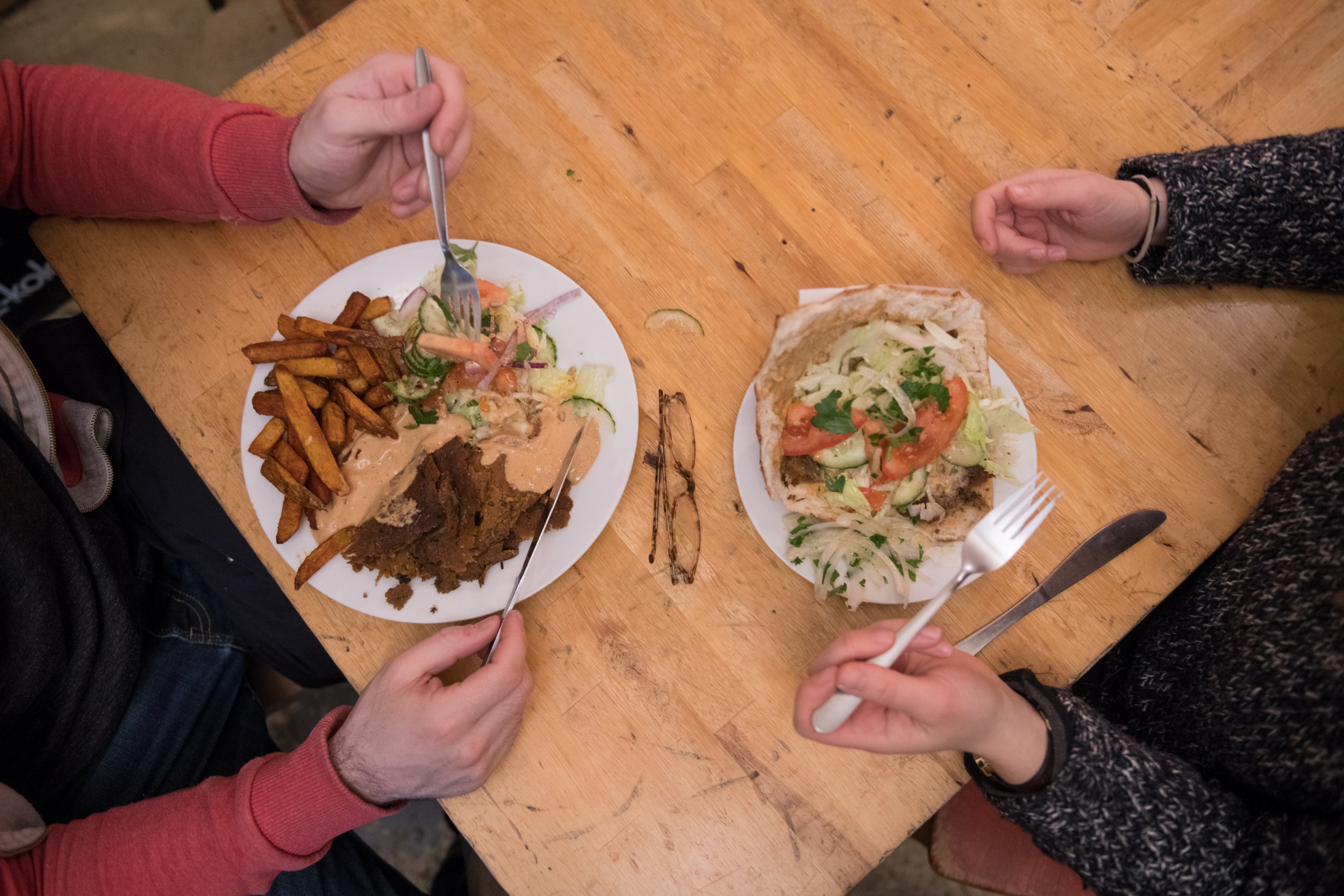
A quick browse of the seemingly endless potential diet plans out there and you may come across the blood type diet. Based on the idea of a tailored diet plan, the blood type diet suggests that dieters eat according to their specific blood type. While health experts suggest that there are some areas that the diet may have gotten wrong, its overall message reflects a growing trend of nutritionists recommending personalized healthcare and fitness plans.
Creator Peter J. D'Adamo told Newsweek that he first came up with the idea for a diet based on a person's individual blood type when he was learning about blood type in medical school. The ABO blood group system was discovered over 100 years ago, and holds that people have different blood types determined by their antigen, a type of protein molecule located on the surface of red blood cells.
"I was quite surprised to discover a very large medical literature on the ABO blood types that had nothing to do with transfusions, but instead showed major difference in many chronic diseases, some of which are known to be dietary-related," D'Adamo told Newsweek. Increasing research shows that a number of health risks, such as risk of high cholesterol, cardiovascular disease and heart attack do appear to be linked to one's blood type.
Working off this, the blood type diet was born. The diet suggests these antigens found in blood cells also account for a number of characteristics of the digestive tract. This means that different foods may react differently with individuals based on their varying blood types.
"The blood type diet is an aggregate of the collected data about a food's makeup and how it interacts with the immune system of the gut in ways that can be predicted by blood type," D'Adamo explained.
In gist, the diet recommends that people with type A blood largely stick to a Mediterranean-like diet, as many plant proteins can offer extra protection against cardiovascular disease, an illness which D'Adamo explained those with type A blood are at greater risk for.
Those with Type B may need to stay away from chicken, as this contains a lectin, a type of protein found in many foods, that targets the type B antigen and as a result may cause an adverse reaction.
Related: What Is The DASH Diet? Here Is The Best Way To Eat To Prevent Heart Disease
Type O individuals may do best with a protein-based diet that has limited grain and dairy intake, as grain lectins are more problematic for people with this blood type.
Lastly, those with type AB, in which both the A and B blood antigens are expressed, have fewer food restrictions, as they are in some ways more tolerant of common foods.
Maria Bella, founder and registered dietitian at Top Balance Nutrition, a medical practice group in New York, told Newsweek that the diet promotes natural foods and encourages all blood types to exercise, points she agrees with. However, she disagrees on what exactly these individualized meal plans should be based off.
"I do believe in individualizing meal plans based on health and diet history and not based on blood type," she said. "The diet restricts some healthy foods for certain blood types. For instance, Type B folks are not allowed to eat lentils, tomatoes, and sesame seeds - all healthy foods. Cutting out entire food groups may result in nutrient deficiencies."
Still, a growing number of food companies are looking to make money off of people's desire to lose weight with a tailored nutrition plan.
Dr. Josh Axe is a certified doctor of natural medicine and the founder of the Keto360 program, a 30-day diet and supplement program. He said he wouldn't necessarily recommend the blood type diet. "Instead I recommend a 'personalized diet', which is a way of eating that is based on your own unique genetics, reactions to different types of foods, whether you have sensitivities/intolerances, and your individual food preferences," Axe told Newsweek.
Related: A Big Breakfast May Be Key To Weight Loss, Study Finds
The California-based nutrition start-up Habit has a similar premise as the blood type diet, but takes it much further. Rather than relying simply on an individual's blood type, this diet looks at customers' biomarkers, body measures and DNA to come up with an individualized plan. "What they [the blood type diet] got right is that people are different and have unique needs, I applaud the intent. The issue is that there is no evidence that blood type can determine the diet you should be on," Joshua Anthony, a scientist who focuses on nutritional science, and Habit's founding chief science officer, told Newsweek.
Overall, the blood type diet has faced a lot of criticism. One recent study found that although adherence to the blood type diet was associated with positive health benefits and lower BMI, there was no science to prove that blood type had anything to do with those results.
Uncommon Knowledge
Newsweek is committed to challenging conventional wisdom and finding connections in the search for common ground.
Newsweek is committed to challenging conventional wisdom and finding connections in the search for common ground.
About the writer
To read how Newsweek uses AI as a newsroom tool, Click here.








